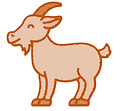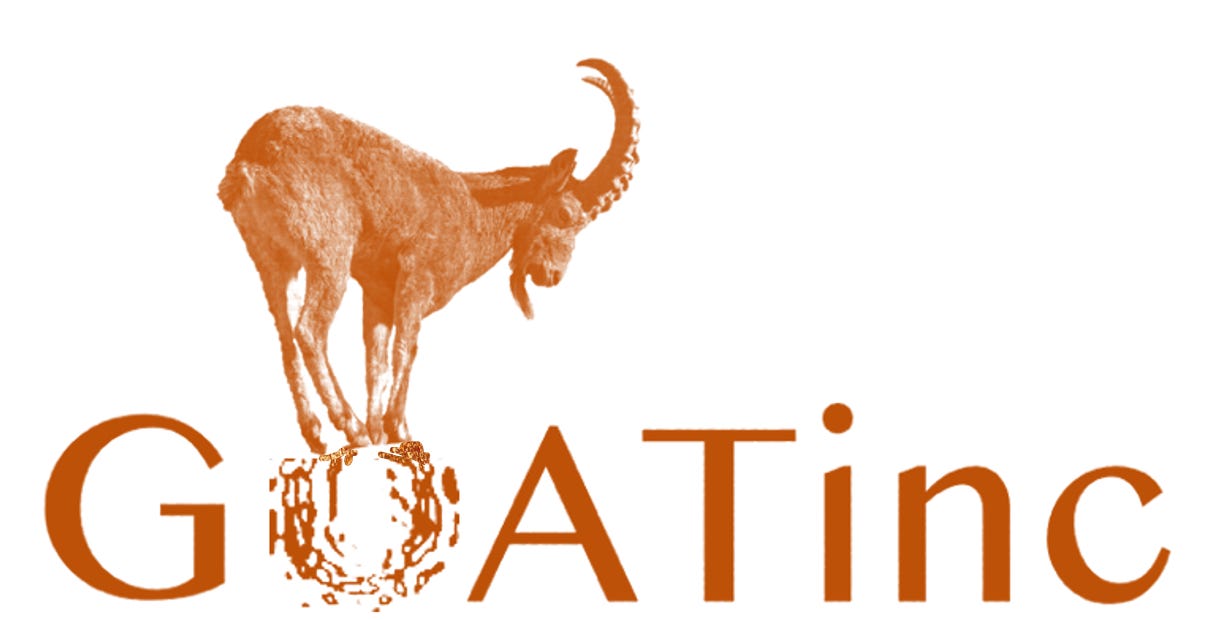The moment the first bananas were traded for the first stone wheel, humans created transactions.
“Actually, I want two bunches for this wheel,” says the stone mason, inventing haggling.
“Deal.”
At the traders’ next visit, a second wheel maker shows up.
Hers are made of wood. They are cheaper and faster to manufacture, more stylish, and, yes, less durable, but she can deliver wheels six at a time.
What started as a simple needs-driven exchange evolves. Haggling is made more dynamic by the cost of production versus utility.
“Six wooden wheels for six bunches of bananas. A steal, right?”
“But my herbaceous banana plant, not technically a tree, doesn’t grow that many bananas. How about three bunches and a bag of this new stuff we call grain? Also, this banana bread recipe as a gift with purchase!”
Sweeteners and deal closers enter the negotiations.
The stone mason, thinking on his feet and sensing he is obsolete, is history’s first turnaround. “My quarry can produce 100 stone arrowheads for the bananas and grain.”
“12 wooden wheels, then.”
“200 arrowheads!”
In that instant, humans create “The Market” where active trading sets arbitrary prices influenced by inputs, leverage, need and opportunity — and the adrenalin of winning.
The next month, as word gets out, more vendors show up to transact deals. The wooden wheel maker has added plows to her sales offerings and the arrowhead manufacturer produces a whole range of tools. Both see the advantages of diversification and R&D.
“Oh, wandering shepherd!” calls the banana grower. “I’ll trade you the next season’s harvest of bananas at a discount now if I can have that goat today.” His community is calcium-deficient.
The Market brings together supply and demand.
“A reasonable reward for the risk,” declares the goat herder loudly and theatrically to the whole market, thereby pioneering grandstanding. Along with his other 20 pregnant goats at home, each now a high-value bargaining chip, he has an avaricious self-interest.
The banana grower has introduced the future into transactions: Acquiring benefits now through a promise of scheduled, but deferred, payments. With that, The Market grapples with speculation, risk and liability built into transactions along with the accumulation of debt.
By next season, the goat herder has brought his friend. She carries a bag she calls a briefcase. She argues “there outta be a law” to wrangle the increasingly complex ways bananas are traded. It’s especially important since a drought ruined the most recent banana harvest and the grower is unable to make good on his debt of the goat.
That’s not fair to either party, they all acknowledge. Just bad luck. The original deal was in good faith, so how is the default resolved? Banging the stone mason’s mallet for effect, she arbitrates a settlement, siding with the lender who took the initial risk. She coins “First Secured Creditor” and the phrase “Put it in writing.”
The goat herder repossesses the goat.
For the trouble of the unpaid loan, he demands from the grower 10 baby banana plant “pups” as penalty — and, to experiment with his own banana supply.
The Market now includes interest, collateral and wealth. With the luxury of momentum and a head start in negotiating richer deals, the wily goat herder and the clever arbiter — shamed as opportunists by the increasingly wise and marginalized banana grower — decide to work together for competitive advantage. Concocting collusion, they commit to operating and regulating in ways that help each of them split control over what deals are done in the expanding market.
The goat herder is the industrialist. He makes business.
The arbiter writes the governing laws. She makes enforcement.
They have no competition at their scale.
The more you win, the more others lose. “Zero-sum” enters the lingo of The Market. New tech called an abacus keeps track.
Calling it a business plan, the goat herder says:
“The harder you play the game, the more favorable you make the playing field for yourself and the more value you extract from each transaction — means you win more and have power over others.”
Only the banana grower, burned by the gamble with the goat herder, sees there is more to a transaction than the simple trading of goods. “Growing for the sake of growth is a recipe for disaster,” he proclaims. “Don’t play the game!”
However, everyone is too distracted at The Market to listen including farmers with cut-rate bananas that push prices and margins down. Instead of improving the grower’s ability to care for his community, The Market is making it tougher. With whatever free time allows, he volunteers to critique the situation and build his constituency of advocates, humanists and environmentalists. He is history’s first “watchdog.”
The original wheel makers, who originate mergers and economies of scale by joining forces in the wake of the goat herder’s legal victories, shift gears to focus on design and technology and eventually the art and science of human expression and discovery.
“Human culture turns on art and science,” says one partner to the other, on the way to a meeting with the goat herder to beg for funding. “Get it? The Wheels of Culture?
“You’ve discovered cliché,” says the other, blasé. “Awesome.”
Their followers cultivate a salon of intellectuals to explore dissent.
“Hunh? That can’t be the right way to do things.”
“It’s outrageous! Unfair! Exploitative!”
“Short-sighted! “Dangerous!”
“Let’s march. Let’s organize. Let us define what a ‘Civil Society’ is, not them!”
“I love this people power! Let’s write a grant proposal!”
“Agreed! But first, Frida and Copernicus are hangry.”
“Me too. I’m starved. Where do we get bananas?”
“Can anyone afford a goat?”
“Is The Market closed Sundays?”
Market complexities blend into a dense matrix of inflows and outflows called formally “The Economy.” As the most powerful human social agreement in the universe, The Economy ignites innovation and opportunity for industry and government to grow year-to-year. The metric is “Gross Domestic Product.”
“Protect the economy! Exceed past accomplishments! More, faster, better, richer!”
“Breathe, pump blood, eat, procreate later.”
“First, squash dissenters like a banana… or be a dissenter!”
Enter tyranny, fealty, coercion and oppression as ways to control the inflows and outflows of The Market.
A growing economy is good. It’s about prosperity. Systems work for more of us. It’s easy to keep the peace. Prices go up as vendors demand more, causing inflation. Eventually, bananas find no buyers. The artificial bubble — that has little to do with actual bananas — bursts. Prices collapse. A shrinking economy is bad. It’s about sacrifice. Systems work for few of us. It’s not so easy to keep the peace as people suffer — and maybe revolt. With time, frictions resolve, prosperity returns and the artificial bubble builds again. Until bust. Then boom. And again.
How people are impacted by the inflows and outflows or whether there is fair access are considerations, debatably, never part of the economic equation. How and why the extraction of value from nature leaves a stain, otherwise known as negative externalities — well, that’s not a consideration either.
The economic algorithm, wrote the banana grower in his political economy treatise that failed to find a publisher, was never coded to differentiate “growth at all costs” versus “growth that is sufficient or compassionate or sustainable,” he tells the next salon of intellectuals dubbed The Echo Chamber.
“It has never mattered how we make more, just that we make more. We’re a world obsessed with ‘What’s the next best thing?’ But who is it best for?”
“Whom,” grumbles Hemingway. “For whom,” corrects Anon.
In these nascent days of The Market, humans are tiny and nature’s bounty is seemingly infinite.
It’s unclear whether that’s because of luck or biogeochemical science or a new wrinkle, divinity. The overwhelming wonder of nature and the mystery of sentience hint at an invisible hand that sparks a wave of believers, alt-believers and non-believers.
“What does God have to do with The Market?” complains the goat herder when he next lunches on bananas flambé with the lawmaker, who has appointed herself chief communicator with the divine.
“Shh!” she warns, timed with a clap of thunder.
“You’ll get smote if you step out of line. Besides, I can’t prove there is a Supreme Being, but you can’t disprove it, either,” she adds, innovating spin and myth along with management by fear and gaslighting. “Don’t you want to rise toward a glittering paradise in your afterlife? Or, do you want to descend into a fiery hell scape unfit for human habitation because of all of your bad deeds?”
Witnesses insist that she uttered the last bit without a hint of irony or presaging the future.
“Amen, sister. But how do you define bad?”
“Exactly!”
To make transactions easier, the lawmaker allows a new fiction called currency to represent value.
To wit: We agree that the blue slip of paper is worth more than the next identical slip of paper, except that it is yellow. When goods are no longer traded to share resources, goods of questionable utility show up at The Market simply to attract money.
“Aren’t platic-wrapped, pre-peeled bananas just so convenient?”
“Yes, time is money!”
In a race to maximize earnings and wealth, the vendors and regulators expand their operations, production, distribution, territories and oversight by managing laborers. Workers, some employed and some enslaved, make more banana groves, wheels, goats and arrowheads. And, more rules to manage the chaos.
Money managers, called banks, provide secure money storage and lending for a fee. Saving for a rainy day expands to saving for your golden years, a time in the future when you retire from labor with a financial nest egg.
“In the aggregate, that promise-obligated money is a behemoth cache of cash,” says the banana grower in formulating an alternative ‘fiduciary’ way to run a human economy. “It is dedicated to the future but is used, instead, to manipulate the now at the expense of that future. That is a threat to everyone.”
To consolidate more power, The King, as she’s now calling herself, builds a police force and sets policies and taxation rates for the privilege of her rule.
She dispatches colonizers to hoist her flag in parts unknown — through discovery or conquest. She gives her pal the goat herder, or Baron as he likes to be called now, the rights to develop these new territories and find new riches, whatever the cost.
Some rules may not apply to him, she says, devising pardons and immunity from prosecution for some, not all. “It’s a divine decree,” The King says, adding that impediments to colonial growth can be, effectively, erased. “We write the history.”
“Better,” he adds, inspired:
“Write the rules to be those few who don’t have to live by them.”
They invent empire building, genocide and globalization.
The Baron organizes his agglomeration of businesses into a “corporation”, which is an immortal legal “person” created by The King to protect the Baron from any liabilities incurred by his businesses.
He rebrands as Greatest Of All Time Inc.
The Baron is the richest person in the world and famous for his conspicuous success at “Growing at all Costs”, which is also the title of his best-selling memoir. However, even he sees that there is less land for goats and the soil is more depleted for BannannasTM , his genetically altered biology that starts to infect other banana DNA and lays the groundwork for intellectual property disputes.
Ignoring any potential fall out to people or silenced spring times, GOAT Inc. develops artificial stimulants, chemical fertilizers and pesticides, mass production, and derivatives and securitization to boost production and the flow of fast money to make more fast money. He uses a new gizmo called a spreadsheet — New AbacasTM — that does vastly complicated math and introduces even more abstracted deal making.
Watchdog International, founded by the banana grower, sends out alarms.
“Nature is alarmingly small, as humans have gotten vast. There are planetary limits to growth that wars, efficiencies and sacrifice don’t solve. Growth at all costs is lethal. It’s anti-human, anti-planet, anti-future. We must revisit the rules we live by!”
He gets, as placation, “accords” through which government and industry “pledge” to do better.
“We must protect the economy, too,” The King and Baron declare thereby giving themselves cover to maintain the status quo and launch greenwashing. “We call it Environmental, Social and Governance investing.”
“I win!” celebrates the banana grower, convinced that the status quo can be wrangled to work, finally, in the best interests of human habitat — without the evidence to substantiate his hope.
“Dad, how does continued, extractive, derivative investment in financialization schemes only nominally about saving the world, actually save the world?” asks his daughter while writing her social studies essay entitled “The Value of Future Generations”. It’s the first “CliFi.” “That’s, like, just more gambling.”
“Take the win, Norma Rae,” he sighs, minting advocacy burnout.
Millennia tick away. The King makes policy that ensures the primacy of government and industry as the two main drivers of The Market. Her decisions about education, rights, penalties, decency, privacy and other human development issues gloss over faulty society design issues. Policies are designed to keep people as pliable input makers and greedy output buyers.
The media contradict each other: Banana futures are up! Oops down! Bananas cause cancer! Bananas are youth elixirs! Bananas are a conspiracy! Death to banana lovers!
Eventually, bananas are added to the extinction watch list.
At the Banana Museum, the former banana grower marches outside with a few friends from The Echo Chamber. “Bananas are a human right!” is scrawled on one placard. “There is no second banana!” on another.
Waving his arms to gain attention — “Over here!” — he outlines The Untaken Safer Alternative. It’s a proposal to sidestep the binary of government and industry oligopoly in The Market by using massive Golden Years savings to steward what he calls Fiduciary Economy. “It’s a third way,” he explains, “that breaks the logjam stymying a scaled response to the crisis and uses the tools we have in hand.”
It’s a work in progress, up a gravel hill, in a snowstorm, at night, he admits, but at least it’s an idea separate from the stuck mainstream — when asked for proof of concept. “What’s your idea?” he asks as a challenge.
Activists paint “#bananahope is real” in huge reflective letters on an Arctic glacier, visible from space.
Later, in the cockpit, with nothing left to trade and no room to grow, the Baron shows his final earthly acquisition called “What’s a banana?”, an NFT that set new crypto auction records.
The King oohs and ahhs appropriately before she adjusts her helmet and straps into her luxury bucket seat on Big Box, loaded with everything they can carry.
A rumble, then the captain calls out “Lift off in 3-2-1!”
As they streak through the stratosphere toward the moon and beyond, the Baron and King look out the porthole, deeply satisfied, as the gray-shrouded, desiccated planet drops away.
“I love winning,” says one giddily.
“Right!? I wouldn’t trade this for anything!”
WE WILL BEAR WITNESS to this moment in history. This media project features stories from earth's citizens, recording climate destruction, devastation, resilience and hope. Tell your story.










